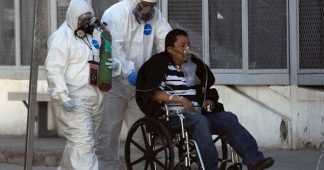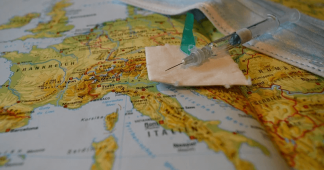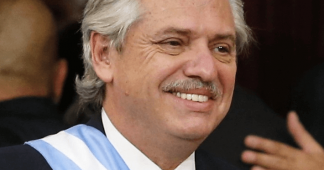by Soeren Kern
- The vaccination rollout has been plagued by bureaucratic sclerosis, poorly-negotiated contracts, penny-pinching and blame shifting — all wrapped in a shroud of secrecy. The result is a needless and embarrassing shortage of vaccines, and yet another a crisis of legitimacy for the EU.
- “The European Commission ordered too late, limited its focus to only a few pharmaceutical companies, agreed on a price in a typically bureaucratic EU manner and completely underestimated the fundamental importance of the situation. We now have a situation where grandchildren in Israel are already vaccinated but the grandparents here are still waiting. That’s just completely wrong.” — Markus Söder, Bavarian premier and possible future German chancellor.
- “I now fear that the European Union will find itself in the impossible situation of having to prolong some of the existing [Covid-19] restrictions beyond the summer, while both Britain and the United States start to normalize. That is the cost of the vaccine delays: a very high cost in lives, prestige and further economic losses.” — Bruno Maçães, political scientist and former Portuguese Europe Minister.
- “The commission decided to aggrandize its competence and it wasn’t up to the job — it didn’t have the right people or the right skills.” — Adrian Wooldridge, political editor, The Economist.
- “In the dispute over the delivery delay of the AstraZeneca vaccine, the EU Commission is currently making the best advertisement for Brexit: It is acting slowly, bureaucratically and protectionist. And if something goes wrong, it’s everyone else’s fault.” — Bettina Schulz, commentator, Die Zeit.
The European Union’s much-touted campaign to vaccinate 450 million Europeans against Covid-19 has gotten off to an inauspicious start. The vaccination rollout has been plagued by bureaucratic sclerosis, poorly-negotiated contracts, penny-pinching and blame shifting — all wrapped in a shroud of secrecy. The result is a needless and embarrassing shortage of vaccines, and yet another a crisis of legitimacy for the EU.
As of February 11, the EU had administered vaccines to approximately 4.5% of its adult population, compared to 14% in the United States, 21% in the United Kingdom and 71% in Israel, according to statistics compiled by Our World in Data. The EU’s vaccination fiasco comes as many European countries are struggling to combat an extremely virulent third wave of the coronavirus and healthcare systems across the continent are once again at breaking points.
The current imbroglio, months in the making, was triggered on January 22, when AstraZeneca, the Anglo-Swedish pharmaceutical company, notified the EU that, due to production problems at a plant in Belgium, initial deliveries of its Covid-19 vaccine would be reduced by 60% in the first quarter of 2021. The company said that it would deliver to the EU only 31 million doses by the end of March, rather than the 80 million doses originally pledged.
A few days earlier, the US-based pharmaceutical company, Pfizer, and its German partner, BioNTech SE, slowed supplies of their vaccine to the EU. Pfizer said that the temporary move was necessary to reconfigure its production plants to increase long-term supply of the vaccine.
European officials, caught off guard amid mounting public anger, resorted to the blame-game by accusing the pharmaceutical companies of failing to honor their contractual commitments. On January 29, the European Commission made public a heavily redacted version of the 42-page contract between the European Commission and AstraZeneca. European officials apparently hoped this move would swing public opinion to their side.
The redactions, however, were ineptly made in such a way that the original text was easily decipherable by tech-savvy members of the public. The now-public text revealed that European negotiators agreed to unusually lenient procurement terms, and that AstraZeneca is under no contractual obligation to deliver a specific quantity of doses within certain time frames. According to the contract, AstraZeneca is only required to make “best reasonable efforts” to deliver the vaccines on schedule.
“It is hard to define the 42 pages as a contract,” concluded Johan Van Overtveldt, chairman of the European Parliament’s budget committee. “This is more a declaration of good intentions.”
In an interview with the German newspaper Die Welt, the CEO of AstraZeneca, Pascal Soriot, admitted that the company was two months behind in production but blamed the supply shortages on the EU’s delays in signing the contracts:
“We’ve also had teething issues like this in the UK supply chain, but the UK contract was signed three months before the European vaccine deal. As a result, with the UK we have had an extra three months to fix all the glitches we experienced….
“We didn’t commit with the EU, by the way. It’s not a [contractual] commitment we have to Europe: it’s a best effort. We said we are going to make our best effort. The reason why we said that is because the EU at the time wanted to be supplied more or less at the same time as the UK, even though the EU’s contract was signed three months later. So, we said, ‘ok, we’re going to do our best, we’re going to try, but we cannot commit contractually because you are three months behind UK.’ We knew it was a super-stretch goal and we know the pandemic is a major issue…. Basically, we said we’re going to try our best, but we can’t guarantee we’re going to succeed. In fact, we are getting there even though we are a little bit delayed.”
Markus Ferber, a German Member of the European Parliament (MEP), noted: “The anger is justified. If I conclude a contract, but there are no obligations for the manufacturer…then it is not a balanced contract.”
European leaders had hoped the vaccine rollout — organized by the European Commission on behalf of all 27 EU member states — would restore confidence in the European Union after Covid-19 systematically destroyed many of the foundational myths — European solidarity, open borders, multilateralism — underpinning European unification.
In her November 2020 “State of the Union” address, European Commission President Ursula von der Leyen announced a grandiose “European Health Union.” In what appeared to be an unabashed power grab, she said that more centralization of decision-making power in Brussels was necessary to fight Covid-19 as well as future pandemics:
“Our aim is to protect the health of all European citizens. The coronavirus pandemic has highlighted the need for more coordination in the EU, more resilient health systems, and better preparation for future crises. We are changing the way we address cross-border health threats. Today, we start building a European Health Union, to protect citizens with high quality care in a crisis and equip the Union and its Member States to prevent and manage health emergencies that affect the whole of Europe.”
EC Vice-President for Promoting the European Way of Life, Margaritis Schinas, added:
“Today, we are taking a big, meaningful step towards a genuine EU Health Union. We are strengthening our common crisis management to prepare and respond to serious cross border threats to health. Our EU agencies need to be equipped with stronger mandates to better protect EU citizens. To fight the COVID-19 pandemic and future health emergencies, more coordination with more efficient tools at EU level is the only way forward.”
Von der Leyen also promised that the EU’s administrative prowess would save not only Europe but the rest of the world from the ravages of Covid-19:
“This vaccine will be a breakthrough in the fight against the coronavirus, and a testament to what partners can achieve when we put our minds, research and resources together. The European Union will do all in its power to ensure that all peoples of this world have access to a vaccine, irrespective of where they live.”
EU Commissioner for Health and Food Safety Stella Kyriakides added:”Working together will increase our chances of securing access to a safe and effective vaccine at the scale we need and as quickly as possible. It will ensure fair and equitable access for all across the EU and globally, thus offering the best opportunity of finding a permanent exit strategy from the COVID-19 crisis. This is the EU at its best: pooling resources, joining efforts, bringing tangible results to the everyday lives of people. No one is safe until everyone is safe and we will leave no stones unturned in our efforts to protect EU and global citizens.”
On January 29, however, in a sudden about-face, Kyriakides abruptly announced plans to impose export controls to prevent shipments of the Covid-19 vaccine from leaving the European Union. She said that EU citizens must be vaccinated first.
Kyriakides’ announcement, specifically aimed at preventing AstraZeneca from using its plant in Belgium to fulfill its contract obligations with the United Kingdom, was a direct attack on the EU-UK Trade and Cooperation Agreement signed a just month earlier. The move, which undermined the foundation of the Brexit deal that took four years of arduous negotiations to complete, set off a firestorm of criticism and triggered yet another self-inflicted public relations disaster for the European Union.
“For Europe to say they are going to control exports [of the vaccine] is contrary to what they said a few months ago, that they were going to give access to everybody,” said Soriot, the CEO of AstraZeneca. The Archbishop of Canterbury, Justin Welby, added:”The European Union was originally inspired by Christian social teaching — at the heart of which is solidarity. Seeking to control the export of vaccines undercuts the EU’s basic ethics. They need to work together with others.”
Now that the vaccine debacle has become the top political issue in Europe today, European leaders appear to be looking to Russia for salvation. In an effort to save face, European regulators reportedly are considering fast-tracking approval of the Russian-made Sputnik V Covid vaccine for use in Europe. Such a move would have been unthinkable just a few weeks ago. That the EU would suddenly cling to Russia, which is under a panoply of EU sanctions for its actions in Ukraine, amounts to massive geopolitical humiliation.
In a January 27 interview with the German broadcaster ZDF, Markus Söder, the Bavarian premier and possible future German chancellor, laid blame for the botched vaccine rollout squarely at the feet of the EU:
“The European Commission ordered too late, limited its focus to only a few pharmaceutical companies, agreed on a price in a typically bureaucratic EU manner and completely underestimated the fundamental importance of the situation.
“We now have a situation where grandchildren in Israel are already vaccinated but the grandparents here are still waiting. That’s just completely wrong.
“It cannot be that such a large continent, which is so economically strong and has so many large pharmaceutical companies, is unable to produce more vaccines.”
Continue reading at www.gatestoneinstitute.org










